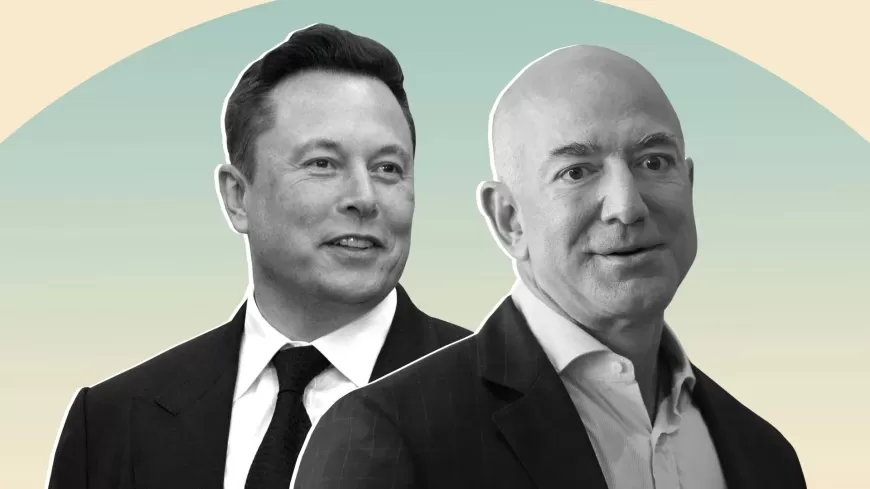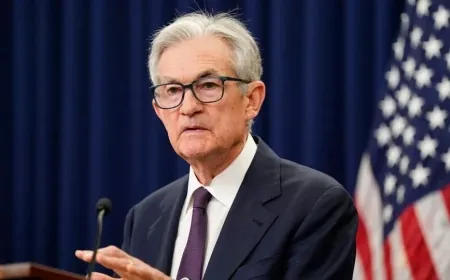Jeff Bezos’ $20 Billion Challenge to SpaceX Intensifies with Trump’s Return to Power
Amazon's Kuiper satellite project faces delays and rising costs as Jeff Bezos competes with SpaceX. Will the Trump administration help or hinder his plans?

Jeff Bezos is up against a significant challenge in his attempt to compete with Elon Musk’s SpaceX in the satellite internet race. Amazon’s Kuiper project, designed to rival SpaceX’s Starlink, has faced major setbacks, rising costs, and shifting political dynamics, especially with Donald Trump preparing for his return to the White House.
Kuiper’s Setbacks and Delays
Amazon’s ambitious satellite project, Project Kuiper, was initially set to begin serving customers by now. However, the project has been delayed multiple times, with the first launches of operational satellites pushed back twice in 2024. The most recent delay came from United Launch Alliance (ULA), which needed to prioritize U.S. Space Force missions over Amazon’s satellite deployment.
To make matters more challenging, ULA is investigating an incident during an October mission, which further delays the timeline for Kuiper’s launches. Originally expected to cost around $10 billion, Amazon’s satellite project now faces an estimated price tag of up to $20 billion. With the FCC’s deadline to deploy over 1,600 satellites by mid-2026, Amazon may struggle to meet the goal without asking for regulatory leniency.
Bezos' Strategy with the Trump Administration
Bezos’ relationship with Donald Trump has been marked by tension in the past. Trump often targeted Bezos over the Washington Post’s coverage of his administration, and Amazon filed a lawsuit accusing Trump of interfering with Pentagon contracts to prevent the company from winning a major contract.
This time, however, Bezos is adopting a more conciliatory approach. Following Trump’s election victory, Bezos publicly congratulated him and acknowledged that Trump appeared more “calm and confident” than during his first term. Amazon also donated $1 million to Trump’s inaugural fund, alongside other tech companies like Meta, signaling that Amazon wants to build a better rapport with the incoming administration, which is seen as favorable to SpaceX’s interests.
Kuiper’s Launch Strategy and Competition with SpaceX
Unlike SpaceX, which has its own fleet of rockets, Amazon is reliant on external providers for Kuiper’s satellite launches. The first satellite mission will use ULA’s Atlas V rocket, an established and reliable vehicle. However, Amazon also has agreements with ULA, European rocket maker Arianespace, and Bezos’ own company, Blue Origin, for future launches. While Blue Origin’s New Glenn rocket is still delayed, Amazon is hopeful that it will eventually serve as a key vehicle for Kuiper’s satellites.
Despite the challenges, Bezos is investing heavily in this space race. “Kuiper’s success will depend on the timely scaling of its launch vehicles,” said Caleb Henry, director at Quilty Space. “Amazon needs all its launch providers to quickly ramp up production to avoid further delays.”
Will Kuiper Be Able to Compete with Starlink?
Once operational, Kuiper has the potential to compete with SpaceX’s Starlink, which already serves a global customer base. Amazon’s deep pockets and strong focus on customer service are seen as key strengths for Kuiper’s future. “There’s room for Kuiper to carve out its place in the market,” said Chris Mooney, an analyst at S&P Global Ratings. “Starlink doesn’t cover the entire global market. If Amazon gets Kuiper off the ground, it could take a significant share.”
However, meeting the FCC’s 2026 deadline for deploying at least half of Kuiper’s proposed 3,236 satellites is a serious challenge. Amazon may need to request an extension from the FCC, but regulatory approval is far from guaranteed, especially with a likely Republican-majority FCC that may not be as lenient on waivers.
The Future of Kuiper and Bezos’ Space Ambitions
Despite the hurdles, Amazon is determined to make Project Kuiper a success. The company plans to launch its first satellites in early 2025, with the goal of providing service to customers by the end of that year. With the space race heating up and regulatory challenges ahead, the competition between Bezos’ Kuiper and Musk’s Starlink is set to become one of the most critical battles in the tech industry over the next few years.
If Bezos can overcome the delays, rising costs, and political pressures, Kuiper could become a formidable competitor in the satellite internet market. However, with Musk’s SpaceX already ahead and the clock ticking, Bezos faces a significant uphill battle.
Also Read: Elon Musk's Wealth Hits $447 Billion, Surpasses Bezos and Costco






























































